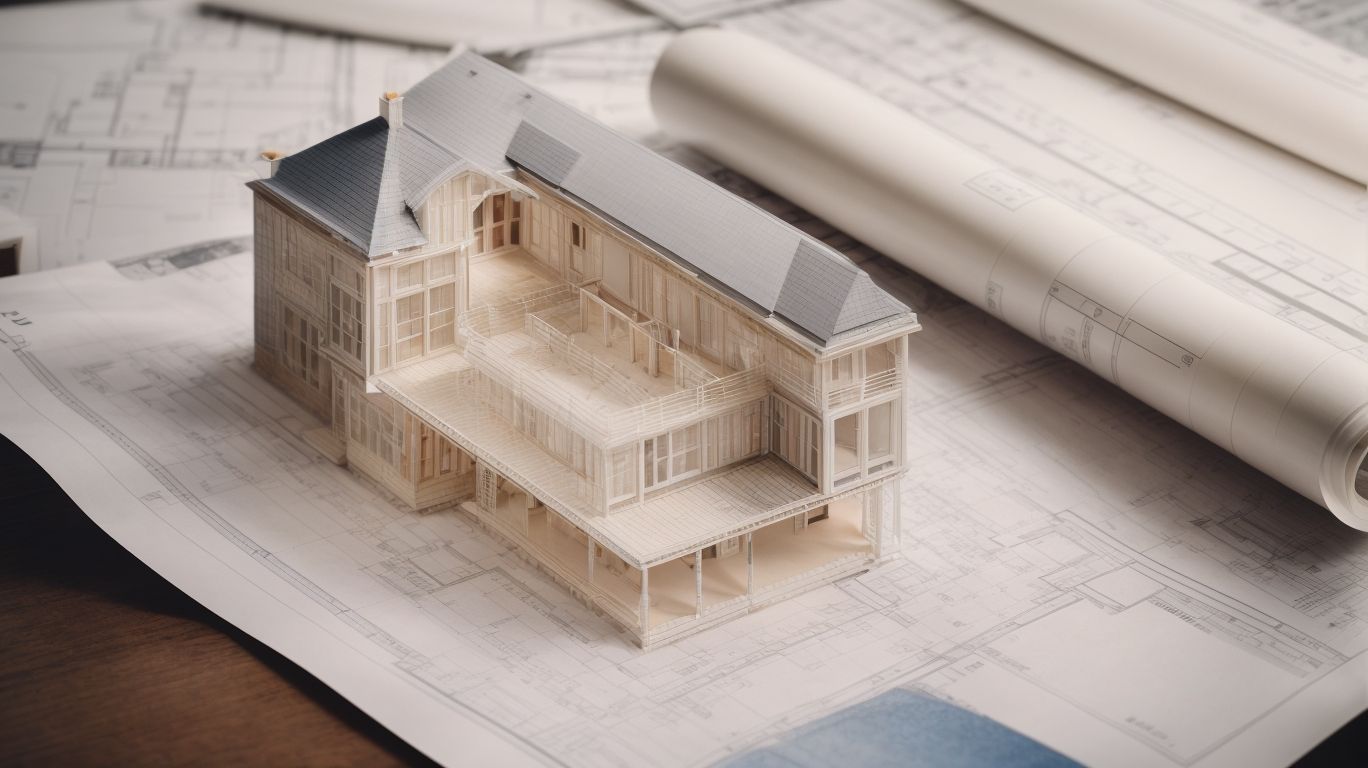
Home Remodeling with Structural Engineers: Bringing Visions to Life in SF
Home remodeling is an exciting endeavor that allows homeowners to bring their visions to life and transform their living spaces into something truly special. Whether it’s a room addition, basement conversion, or a kitchen and bathroom remodeling, the process involves careful planning, expert design, and meticulous execution.
In the vibrant city of San Francisco, home remodeling has become an art form, where architectural innovation meets structural integrity. This article will delve into the crucial role of structural engineers in the home remodeling process, why hiring a structural engineer is essential, the specific steps involved in remodeling with a structural engineer, and the benefits of doing so. We will also explore some common home remodeling projects that require the expertise of a structural engineer and provide valuable insights on how to find and hire a reliable professional in the San Francisco area. Buckle up as we embark on a journey to discover the intersection of creativity and construction in the realm of home remodeling with structural engineers in San Francisco.
What Is Home Remodeling?
Home remodeling encompasses the process of altering or improving the structure, design, or layout of a residential property to enhance its functionality, aesthetic appeal, or value.
It involves various aspects such as design, where homeowners work with architects or designers to create the desired look and feel of their space. Construction is a critical phase, requiring skilled labor and quality materials to bring the design to life.
Architectural considerations, including zoning regulations and structural integrity, play a crucial role in ensuring the successful completion of a remodeling project. By integrating these elements, homeowners can transform their living spaces into personalized and functional areas that meet their evolving needs and preferences.
Why Should You Hire a Structural Engineer for Home Remodeling?
Hiring a structural engineer for home remodeling in SF is essential to ensure compliance with building codes, obtain necessary permits, and maintain the structural integrity of residential properties.
Their expertise in assessing the existing structure, identifying potential safety hazards, and proposing appropriate interventions is crucial for a successful remodeling project. By engaging a structural engineer, homeowners can rest assured that their renovations meet the required structural standards, reducing the risk of unforeseen issues down the line.
The engineer plays a pivotal role in liaising with local authorities to secure permits, streamlining the approval process and ensuring that the project adheres to all regulatory requirements, thus saving time and minimizing potential setbacks.
What Are the Roles of a Structural Engineer in Home Remodeling?
Structural engineers play pivotal roles in home remodeling projects, encompassing tasks such as structural assessment, building code compliance, permit acquisition, and ensuring the stability of the property’s structure.
Their involvement in structural assessments involves inspecting and analyzing existing structures to determine their load-bearing capacity, identifying any weaknesses or potential hazards, and devising solutions to reinforce or modify the structure as needed. They are responsible for ensuring that the remodeling plans adhere to building codes and regulations, obtaining the necessary permits for construction and renovation work, and verifying that the property’s structure remains stable and secure throughout the remodeling process.
What Are the Steps for Home Remodeling with a Structural Engineer?
The process of home remodeling with a structural engineer involves several crucial steps, including:
- Initial consultation
- Concept design
- Structural analysis
- Permit acquisition
- Efficient project management
During the initial consultation, the structural engineer assesses the existing conditions of the home, listens to the homeowner’s vision, and discusses possible design approaches. Once the concept design is finalized, the structural engineer conducts a thorough structural analysis to ensure that the proposed changes adhere to building codes and safety standards.
Following this, the engineer assists in acquiring the necessary permits from local authorities. Efficient project management is crucial to coordinate various trades and ensure that the remodeling process progresses smoothly while maintaining structural integrity.
Initial Consultation and Site Visit
The initial consultation and site visit are crucial components of the home remodeling project, allowing the structural engineer to assess the property, understand the client’s vision, and outline the project scope and requirements.
During the initial consultation, the structural engineer gains valuable insight into the existing structure, identifying any potential challenges or opportunities for improvement. The site visit provides an opportunity for open communication with the client, fostering a collaborative environment where preferences, budget constraints, and design ideas can be discussed. This early interaction is essential for establishing clear project objectives and defining the scope of work, ensuring that the remodeling process aligns with the client’s expectations from the outset.
Concept Design and Planning
Concept design and planning are foundational stages in home remodeling, involving the translation of client visions into architectural concepts and comprehensive plans for the construction and renovation process.
It is during these initial stages that the ultimate vision for the home transformation begins taking shape. The concept design serves as the blueprint, capturing the essence and functionality desired by the homeowner. Through meticulous planning, various elements such as space utilization, material selection, and structural requirements are carefully integrated to ensure a seamless journey from concept to construction.
The collaboration between the design team and the client at this phase is crucial in aligning expectations and ensuring that the envisioned transformation becomes a reality.
Structural Analysis and Calculations
Structural analysis and calculations form the technical backbone of home remodeling, involving the assessment of existing structures, load-bearing considerations, and the calculation of necessary adjustments for renovation projects.
These analyses are crucial for determining the integrity of the building’s framework, identifying potential weak points, and ensuring that any alterations maintain structural stability. Load-bearing considerations play a pivotal role in understanding how the weight of the structure is distributed and how it can be safely modified.
Through precise calculations, engineers and architects can determine the required modifications to ensure that the renovated space meets safety and functionality standards while aligning with the homeowner’s vision.
Permit Acquisition and Approval
Obtaining the requisite permits and approvals is a critical step in home remodeling, ensuring compliance with city regulations and building codes to facilitate the legal execution of renovation projects.
This process not only guarantees that the renovation adheres to safety standards and regulations but also helps homeowners avoid potential legal issues. Acquiring permits provides a structured framework for the renovation, ensuring that professionals carry out the work, maintaining the quality and integrity of the project. It demonstrates the commitment of the homeowner to responsible remodeling and contributes to the overall safety and sustainability of the community’s built environment.
Construction and Project Management
The construction phase and effective project management are pivotal aspects of home remodeling, encompassing the execution of the renovation plans and efficient oversight of the project’s progress by the structural engineer.
It involves coordinating various contractors, ensuring compliance with building codes and regulations, and maintaining quality control throughout the construction process. The project manager plays a crucial role in orchestrating the timeline, resources, and budget to ensure the smooth execution of the renovation plans.
Efficient project management also involves effective communication with the homeowners, keeping them informed about the progress and addressing any concerns or modifications in the project. This collaborative approach leads to successful and satisfying home remodeling experiences for all parties involved.
What Are the Benefits of Hiring a Structural Engineer for Home Remodeling?
Engaging a structural engineer for home remodeling offers multifaceted benefits, including ensuring structural safety, cost and time savings, and accessing professional expertise and guidance throughout the renovation process.
Their expertise goes beyond just ensuring the structural integrity of the renovation. They can also optimize the design to minimize material wastage and cut down on construction time, ultimately saving costs. Their involvement helps in obtaining necessary permits and approvals, streamlining the entire process.
With a structural engineer on board, homeowners can have peace of mind knowing that their remodeling project is in capable hands, resulting in a successful and stress-free renovation experience.
Ensures Structural Safety and Stability
The primary benefit of hiring a structural engineer for home remodeling is the assurance of structural safety and stability, ensuring the property’s integrity and resilience against potential structural risks.
This means that homeowners can have peace of mind knowing that their newly remodeled home not only looks great but also stands strong against various environmental factors and structural challenges. The expertise of a structural engineer in analyzing and designing structural components plays a crucial role in maintaining the long-term safety and stability of the property. By prioritizing structural integrity, homeowners can safeguard their investment and ensure a comfortable living environment for their family.
Saves Time and Money
The involvement of a structural engineer in home remodeling translates to significant time and cost savings, attributed to efficient project management, streamlined construction processes, and optimized resource utilization.
Their expertise ensures that the design and implementation of structural changes are executed seamlessly, minimizing delays and rework. Through thorough assessments and planning, a structural engineer can anticipate potential issues, proactively mitigating risks and avoiding costly setbacks. Their understanding of local building codes and regulations can expedite the permit approval process, accelerating the project timeline. By optimizing material selection and construction methods, they enable resource utilization that aligns with sustainability and cost-effectiveness, ultimately providing long-term benefits for homeowners.
Provides Expertise and Professionalism
The engagement of a structural engineer for home remodeling projects brings forth unparalleled expertise, professionalism, and industry insight, enhancing the overall quality and success of the renovation endeavor.
Their in-depth understanding of building materials, load-bearing capacities, and structural integrity allows for the implementation of innovative design elements while ensuring safety standards are met. By collaborating closely with architects, contractors, and homeowners, structural engineers ensure that the renovation plans are not only aesthetically pleasing but also structurally sound.
This cohesive approach mitigates potential risks and facilitates a seamless transformation, ultimately adding long-term value to the property.
What Are Some Common Home Remodeling Projects That Require a Structural Engineer?
Several typical home remodeling projects necessitate the involvement of a structural engineer, including room additions, basement conversions, and kitchen and bathroom remodeling, due to their impact on the property’s structural integrity and stability.
Room additions often require a structural engineer to ensure that the existing foundation can support the added weight and that the new structure aligns with building codes.
Basement conversions involve major structural changes, such as underpinning and reinforcing walls, to provide strength and stability. Similarly, kitchen and bathroom remodeling may require alterations to load-bearing walls or the installation of support beams to maintain the structural integrity of the property.
In all these cases, the expertise of a structural engineer is crucial to ensure the safety and longevity of the home’s structure.
Room Additions
Room additions demand the expertise of a structural engineer in home remodeling, as they entail altering the property’s existing structure and foundation to accommodate additional living spaces or functional areas.
Their role is pivotal in ensuring that the new additions seamlessly integrate with the existing design, while also meeting safety and regulatory standards. Structural engineers possess the knowledge and skills to assess the structural integrity of the building, devise supporting frameworks, and recommend suitable construction materials. Their expertise in modifying existing structures, redistributing loads, and reinforcing foundations is vital for the successful implementation of room additions, providing homeowners with functional, durable, and aesthetically pleasing living spaces.
Basement Conversions
Basement conversions necessitate the involvement of a structural engineer in home remodeling, particularly for addressing seismic retrofitting and structural modifications to repurpose the basement space for alternative uses.
Their expertise is essential in ensuring that the structural integrity of the building is maintained while transforming the basement into functional living spaces. From evaluating the existing foundation to devising solutions for load-bearing requirements, a structural engineer plays a crucial role in optimizing the basement’s potential.
By incorporating innovative design techniques and utilizing advanced construction materials, they can enhance the safety and stability of the structure, making it suitable for residential occupancy. Their input is invaluable in realizing the full potential of basement conversions while adhering to safety standards and building codes.
Kitchen and Bathroom Remodeling
Kitchen and bathroom remodeling projects often require the expertise of a structural engineer due to their involvement in load-bearing wall alterations, spatial reconfigurations, and the integration of new fixtures within the property structure.
Their role is crucial in ensuring that the structural integrity of the property is maintained while implementing design changes. Structural engineers assess the existing framework and provide insights into how to best alter load-bearing walls to accommodate new layouts or fixtures. They also play a vital role in spatial reconfigurations, making sure that the changes align with building codes and safety standards. Their expertise includes integrating new fixtures, such as sinks or bathtubs, without compromising the property’s structure.
Structural Repairs and Renovations
Structural repairs and renovations, including addressing foundation issues, building material upgrades, and structural reinforcements, demand the involvement of a structural engineer for thorough assessment and effective solutions.
Their expertise in evaluating the structural integrity of buildings and designing appropriate solutions is crucial in ensuring the safety and longevity of the structure. A structural engineer identifies potential weaknesses, such as cracks or shifts in the foundation, and devises strategies for repair or reinforcement. They play a key role in evaluating the need for building material upgrades, ensuring that the materials used meet safety standards and contribute to the overall stability of the structure.
Their comprehensive approach considers not just the immediate issues but also the long-term implications, providing a sustainable and reliable solution for structural improvements.
How to Find and Hire a Reliable Structural Engineer for Home Remodeling in SF?
Finding and hiring a reliable structural engineer for home remodeling in SF involves thorough research, credential verification, detailed proposals, effective communication, and collaboration to ensure a successful partnership for the renovation project.
During the research phase, it’s crucial to seek out recommendations from trusted sources, review online portfolios, and compare previous projects to gauge the engineer’s expertise. Once shortlisted, verifying the engineer’s credentials, such as licenses and certifications, is essential for ensuring their qualifications.
Detailed proposals should outline the scope of work, timelines, and cost estimates, while open communication and collaboration facilitate a smooth working relationship. Ultimately, the right engineer will bring valuable insights and expertise to the remodeling project, ensuring structural integrity and innovation throughout the process.
Research and Ask for Recommendations
Initiating the search for a reliable structural engineer involves conducting thorough research, seeking recommendations, and evaluating their track record in successful residential renovation projects.
This initial step allows prospective clients to gauge the engineers’ expertise and capabilities in handling similar projects, ensuring that they are well-equipped to deliver high-quality results. By examining their previous work, clients can gain insights into their design innovation, problem-solving skills, and adherence to project timelines.
Reaching out to industry professionals and homeowners who have undergone similar renovations can provide valuable insights and recommendations, guiding the selection process for a reputable structural engineer.
Check Credentials and Experience
Evaluating the credentials and experience of potential structural engineers for home remodeling involves assessing their qualifications, project portfolios, and past inspection and compliance records to ensure expertise and reliability.
This process is crucial to ensure that the engineer possesses the necessary skills and experience to handle the specific structural requirements of the remodeling project. By thoroughly reviewing their qualifications, such as degrees, certifications, and professional affiliations, it’s possible to gauge their theoretical knowledge and understanding of industry best practices.
Examining their project portfolios provides insight into their practical experience and the types of projects they have successfully completed, while scrutinizing their past inspection and compliance records helps to verify their track record of meeting regulatory standards.
Request for a Detailed Proposal and Contract
Securing a detailed proposal and contract from the chosen structural engineer is essential for establishing clear project parameters, deliverables, timelines, and mutual responsibilities for the successful completion of the home remodeling endeavor.
This comprehensive documentation outlines the scope of work, budget, and potential constraints, ensuring that both parties are aligned on expectations. A well-crafted proposal and contract also serve as a reference point throughout the project, offering a roadmap for decision-making and dispute resolution.
By clearly defining roles and responsibilities, the engineer’s expertise and the homeowner’s vision can be harmoniously integrated, fostering a productive working relationship and ultimately leading to a successful and satisfying home remodeling experience.
Communicate and Collaborate Effectively
Effective communication and collaboration with the chosen structural engineer are vital for aligning visions, addressing concerns, and ensuring seamless project management and execution throughout the home remodeling process.
This collaboration with the structural engineer helps in bridging the gap between design intent and practical implementation. By understanding the architectural plans and technical requirements, the structural engineer plays a crucial role in guiding the project towards structural stability and code compliance. Their input in material selection, load-bearing considerations, and potential challenges enhances the overall project outcome.
Clear communication also fosters a collaborative environment, enabling effective problem-solving and timely decision-making, essential for a successful home remodeling endeavor.




No Comments